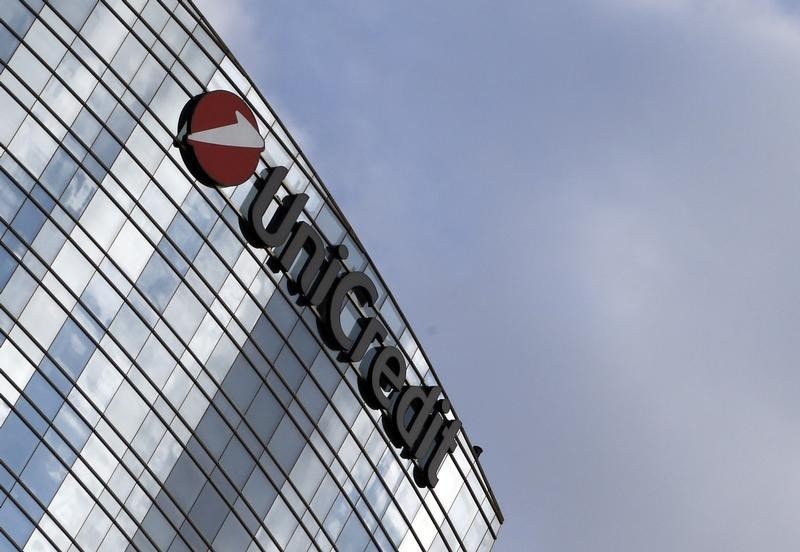Raytheon awarded $71 million in Navy contracts for missile systems
(Bloomberg) -- UniCredit SpA can come close to achieving its profit target for next year if Europe’s economy rebounds as strongly as the bank expects, Chief Executive Officer Jean Pierre Mustier said after the lender reported its biggest net loss in three years.
Italy’s biggest bank by assets can reach 75% to 80% of its net income goal for next year, or 3 billion euros ($3.2 billion) to 3.5 billion euros, if the European Union economy rebounds by 10% as the bank’s economists expect, Mustier said on a conference call.
Italy’s economy went into Europe’s longest lockdown to combat the coronavirus a few months after Mustier set out a new strategy to improve profitability and increase shareholder payouts. UniCredit expects to review its plan by early next year and the CEO said on Wednesday that the bank isn’t setting new targets for 2020 as uncertainty remains too high. The company will decide in the fourth quarter whether to distribute dividends on 2019 earnings.
UniCredit posted a first quarter net loss of 2.71 billion euros, as loan-loss provisions climbed to 1.26 billion euros, and it booked one off costs for job cuts and the writedown of its Turkish unit. About 900 million euros was set aside last month, specifically to deal with the impact of the virus. The lender’s main business was resilient in the first quarter, with income from fees and lending beating estimates.
UniCredit (OTC:UNCRY) was up by 0.7% in Milan trading as of 12:28 a.m. after having fallen as much as 2% earlier. That takes this year’s drop to about 48% compared with a 40% decline of the STOXX Europe 600 Banks Index.
The CEO, set aside more money than many of his European competitors including Italian rival Intesa Sanpaolo (OTC:ISNPY) SpA. The bank booked costs as it started the process of eliminating 5,200 existing jobs in Italy through 2023 and took a charge for the sale of a stake in Turkish business Yapi ve Kredi Bankasi AS.
“We want to be always extremely conservative in what we do” to produce a positive surprise later Mustier said.
“Core revenues were better, capital was affected by sizeable non-operating items, and it is broadly in line with adjusted consensus,” Citigroup (NYSE:C) analyst Azzurra Guelfi wrote in a note. The bank “has provided significant disclosure for cost of risk outlook, to reassure the market on the impact of macro deterioration.”
UniCredit was the first big European bank to try to quantify the effect of the coronavirus, setting the provisions and predicting a 13% contraction in the euro zone’s economy for the year. Banks across Europe have added billions of euros in provisions and tossed out their earlier forecasts for earnings this year, with many also saying it’s too early to provide new estimates.
Despite the affects of the pandemic on borrowers, UniCredit reduced its non-performing loan ratio to 4.9% as of March from 5% at the end of December. The CET1 ratio, a key measure of financial strength, rose to 13.44% from 13.09%. Regulators have encouraged banks to tap into their capital buffers to make more money available for lending.
Italy was the first major European economy to impose a virus-related lockdown, with non-essential businesses closed on March 9 and a ban on travel between the country’s provinces. The country, which had some of the highest infection rates and deaths, started the first stage of a gradual re-opening businesses on May 4.
The net loss is the biggest for UniCredit since the fourth quarter of 2016, when the bank posted a loss of 13.6 billion euros on charges related to Mustier’s restructuring.
©2020 Bloomberg L.P.
